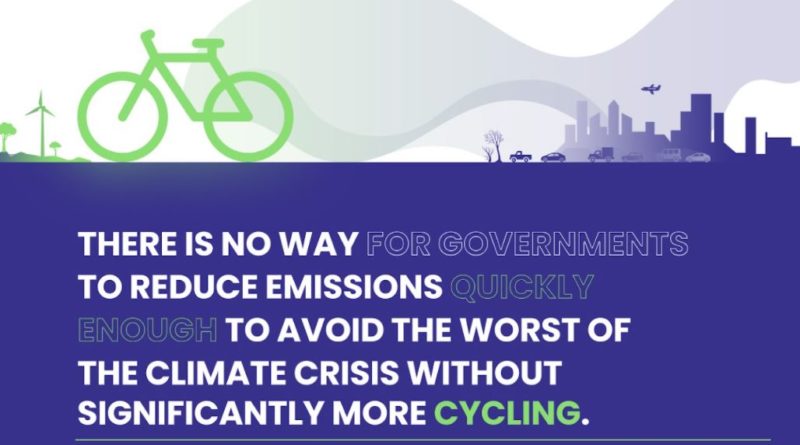Open letter to COP26 asks world leaders not to overlook transport emissions quick fix
An open letter co-signed by 80 global cycling associations has called on COP26 delegates not to gloss past cycling’s role as a transport form and one that stands to offer far greater emissions reductions than a widely lobbied for switch to electric cars.
COP26 has underwhelmed those in the cycling world with journalists on the inside of the Glasgow event highlighting that, in transport terms, the conference’s focus is squarely pitched at keeping the status quo of private car ownership; albeit with the combustion engine removed.
It’s not just cycling that’s apparently overlooked either, public transport has been inexplicably glossed past. UK Prime Minister Boris Johnson marked his closing speech with the soundbite “Coal, Cars, Cash and Trees“.
The open letter from cycling’s umbrella associations and advocacy groups highlights the open goal sat right in front of policy makers, writing “Worldwide, transportation is responsible for 24% of direct CO₂ emissions from fuel combustion. Road vehicles account for nearly three quarters of transport CO₂ emissions, and these numbers are not decreasing. Aside from the unsustainable levels of CO₂ emissions that are ruining Earth’s climate, road vehicles are polluting our air at unprecedented levels, killing an estimated seven million people worldwide every year.
“Cycling represents one of humanity’s greatest hopes for a shift towards a zero-carbon future. New research shows that life-cycle CO₂ emissions drop by 14% per additional cycling trip and by 62% for each avoided car trip. Switching from a car to a bicycle saves 150g of CO₂ per kilometre. E-cargo bikes cut carbon emissions by 90% compared with diesel vans. Swapping the car in cities for walking and cycling even just one day a week can reduce your carbon footprint by about half a tonne of CO₂ over a year. Building synergies with other travel modes such as public transport can critically enhance this potential.”
The letter goes on to recommend six action points for policy makers, ranging the financing of national cycling strategies to data collect and implement cycling infrastructure, right through to building a multi-modal ready transport ecosystem that encourages longer trips to feature both public transport and last mile active travel.
Back in July the European Commission did make amendments to its strategy proposal on low emissions mobility recommendations that swung in favour of doing more to build for and promote cycle use.



